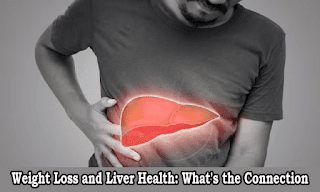Introduction
Weight loss can be a significant symptom of liver health issues. The liver plays a crucial role in various metabolic processes, including nutrient absorption, fat metabolism, and energy production. Disruption in liver function can lead to unintentional weight loss and other health problems. Understanding the connection between weight loss and liver health can help in identifying potential liver conditions and managing symptoms effectively.
How Liver Health Affects Weight Loss
Hepatitis
- Inflammation of the liver caused by viral infections, alcohol consumption, or autoimmune diseases can lead to metabolic disturbances and weight loss.
Liver Cirrhosis
- Chronic liver damage characterized by scarring impairs liver function, often resulting in malnutrition and significant weight loss.
Fatty Liver Disease
- Accumulation of fat in liver cells, typically due to obesity, poor diet, or excessive alcohol intake, can progress to liver dysfunction and unintentional weight loss.
Liver Cancer
- Tumors in the liver can interfere with normal liver function, leading to weight loss and other systemic symptoms.
Malabsorption
- Liver diseases can affect the production and flow of bile, essential for the digestion and absorption of fats and fat-soluble vitamins, leading to malabsorption and weight loss.
Symptoms Accompanying Weight Loss
Weight loss related to liver health is often accompanied by other symptoms, such as:
- Fatigue
- Loss of appetite
- Nausea and vomiting
- Jaundice (yellowing of the skin and eyes)
- Abdominal pain and swelling
- Dark urine
- Pale stools
- Itchy skin
Managing Weight Loss Related to Liver Health
Dietary Adjustments
- Nutritious, High-Calorie Foods: Focus on nutrient-dense foods to maintain weight and nutrition.
- Small, Frequent Meals: Eating smaller, more frequent meals can help manage nausea and improve nutrient intake.
- Protein-Rich Foods: Incorporate lean proteins such as fish, poultry, beans, and nuts to support muscle mass and overall health.
- Avoid Alcohol: Alcohol can worsen liver damage and contribute to weight loss.
Medical Treatments
- Addressing Underlying Conditions: Proper management of liver diseases like hepatitis, cirrhosis, or fatty liver disease is crucial for stabilizing weight.
- Medications: Medications may be prescribed to manage liver conditions, reduce symptoms, and improve appetite.
- Nutritional Supplements: Supplements may be necessary to meet dietary needs when food intake is insufficient.
Lifestyle Changes
- Regular Exercise: Gentle physical activity can help maintain muscle mass and improve overall well-being.
- Stress Management: Techniques such as meditation, yoga, and deep breathing can reduce stress and improve appetite.
Home Remedies
- Ginger and Peppermint: These can help soothe the stomach and improve appetite.
- Comfortable Eating Environment: Eating in a relaxed and pleasant setting can make meals more appealing.
When to Seek Medical Attention
- If you experience unintentional weight loss accompanied by significant symptoms such as jaundice, severe abdominal pain, or persistent nausea, it is essential to seek medical attention promptly.
Conclusion
Unintentional weight loss can be a significant indicator of liver health issues. By understanding the underlying causes and implementing effective management strategies, you can help stabilize your weight and support liver health. Maintaining a healthy lifestyle, making appropriate dietary changes, and seeking medical care when necessary are key steps in managing weight loss related to liver health. If you notice persistent or severe symptoms, consult a healthcare professional for a proper diagnosis and treatment plan.



